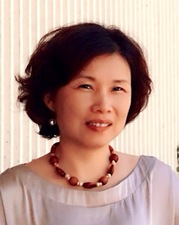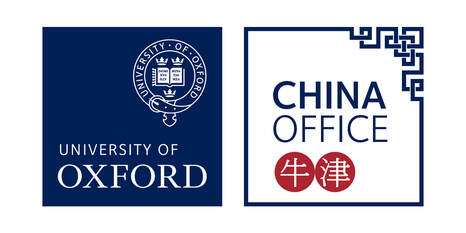Oxford China Academics

Dr Fu Xiaolan is Director of the Technology and Management for Development Centre, Professor of Technology and International Development and Fellow of Green Templeton College. She also leads several British Research Council funded projects, including a £600,000 project on The Diffusion of Innovation in Low-Income Countries. Her latest book is China’s Role in Global Economic Recovery (Routledge, 2011). She received the European Commission Gate2Growth 2005 'European Best Paper' Award, and has conducted consultancy research for many international organisations and the Chinese government. Dr Fu serves on the Advisory Expert Group of the OECD Global Investment Forum and is President of the Chinese Economic Association (Europe) and CEA (UK). She is also a Senior Research Associate at the University of Cambridge and Tsinghua University, and a Visiting Professor at Guangdong University of Foreign Studies. As a leading China expert, she has been interviewed by many top media organisations. Dr Fu has many years of experience working in the academic and business sectors in China.
A day in the life of Fu Xiaolan at Oxford is often packed with supervisory meetings with my DPhil and masters students, lectures and discussions with my post-doc research fellows about our projects, attending committee meetings, as well as dealing with the administrative matters of the Technology and Management for Development Centre (TMD) and the MPhil in Development Studies program. I have been the Course Director of this flagship program for the past two years and will move on to direct the Doctoral Program from October. In between, I have to find time to answer emails, perhaps over a quick sandwich lunch, and connect with the outside world. Sometimes I will receive requests from international organisations or the media asking me to comment on emergent issues in my area of expertise. A day during term time for me is super busy and very hectic.
I began my research on technology and innovation policy and management when I was working on a project benchmarking innovation in the EU and US. This experience made me realise how important innovation is for competitiveness and growth - it is the key field for competition amongst these developed countries. At that time, there wasn’t much emphasis on innovation in China. Innovation is the key area in which China needs to emphasize in order to sustain its development, upgrade its industry, transform the quality of its growth and become an advanced economy. China needs very high quality research in this field. Innovation is very important for general development study. The Oxford Department of International Development's focus on developing countries provides me with a great environment in which to conduct this research.
Technological innovation is fundamental for industrial upgrading and structural change. It is also a must for China if it is to transform the quality of its economic growth from one driven by input to one driven by knowledge and innovation. This would make for higher productivity, better welfare for workers and less environmental damage.
A day in the life of Fu Xiaolan at Oxford is often packed with supervisory meetings with my DPhil and masters students, lectures and discussions with my post-doc research fellows about our projects, attending committee meetings, as well as dealing with the administrative matters of the Technology and Management for Development Centre (TMD) and the MPhil in Development Studies program. I have been the Course Director of this flagship program for the past two years and will move on to direct the Doctoral Program from October. In between, I have to find time to answer emails, perhaps over a quick sandwich lunch, and connect with the outside world. Sometimes I will receive requests from international organisations or the media asking me to comment on emergent issues in my area of expertise. A day during term time for me is super busy and very hectic.
I began my research on technology and innovation policy and management when I was working on a project benchmarking innovation in the EU and US. This experience made me realise how important innovation is for competitiveness and growth - it is the key field for competition amongst these developed countries. At that time, there wasn’t much emphasis on innovation in China. Innovation is the key area in which China needs to emphasize in order to sustain its development, upgrade its industry, transform the quality of its growth and become an advanced economy. China needs very high quality research in this field. Innovation is very important for general development study. The Oxford Department of International Development's focus on developing countries provides me with a great environment in which to conduct this research.
Technological innovation is fundamental for industrial upgrading and structural change. It is also a must for China if it is to transform the quality of its economic growth from one driven by input to one driven by knowledge and innovation. This would make for higher productivity, better welfare for workers and less environmental damage.
|
Technological innovation is the only solution to the challenges of climate change and resources which will significantly constrain China's growth potential.
|
As China is now a major economy which is highly integrated into the global economy, strong and stable growth there will no doubt provide a powerful engine for the global economic recovery through growing exports to China and increasing outward investment from China. China will also become a source of knowledge and technology for other developing countries, particular those with low income.
The best thing about being an academic at Oxford is that you can exchange ideas and collaborate easily with colleagues who are also world leading scholars in their areas. You have the opportunity to educate talented youngsters who will become future leaders of the world. You have greater opportunity to impact the world by advising policy makers and business leaders. Oxford is also a place where talented people can grow and excel. It has Europe's largest multi-disciplinary centre for China study. There aren't any places like this elsewhere in Europe, where you can work closely with so many of the world's leading scholars in Chinese economy, politics and society. It also has a large pool of outstanding and successful alumni. All this combined makes Oxford a distinctive place to study China.
On being a globe-trotting Oxford academic
My research ideas are often inspired by real problems in real economy. I also believe that research should ultimately contribute to the real world. Juxtaposing life in the dreaming spires with frequent travels helps me to produce world class research that is useful for the real world. Good time management and hard work are a necessity for making this possible. Support from my wonderful family is also very important.
One of my proudest achievements is that I am the first person from mainland China to have been appointed as a tenured faculty member in the social sciences at Oxford. I was also the youngest associate professor in China's banking sector when I was appointed in the 1990s. However, I would say that the founding of the TMD is my proudest achievement. Research carried out by the Centre and the talents trained by the Centre will make essential contributions to China and to the world.
The best thing about being an academic at Oxford is that you can exchange ideas and collaborate easily with colleagues who are also world leading scholars in their areas. You have the opportunity to educate talented youngsters who will become future leaders of the world. You have greater opportunity to impact the world by advising policy makers and business leaders. Oxford is also a place where talented people can grow and excel. It has Europe's largest multi-disciplinary centre for China study. There aren't any places like this elsewhere in Europe, where you can work closely with so many of the world's leading scholars in Chinese economy, politics and society. It also has a large pool of outstanding and successful alumni. All this combined makes Oxford a distinctive place to study China.
On being a globe-trotting Oxford academic
My research ideas are often inspired by real problems in real economy. I also believe that research should ultimately contribute to the real world. Juxtaposing life in the dreaming spires with frequent travels helps me to produce world class research that is useful for the real world. Good time management and hard work are a necessity for making this possible. Support from my wonderful family is also very important.
One of my proudest achievements is that I am the first person from mainland China to have been appointed as a tenured faculty member in the social sciences at Oxford. I was also the youngest associate professor in China's banking sector when I was appointed in the 1990s. However, I would say that the founding of the TMD is my proudest achievement. Research carried out by the Centre and the talents trained by the Centre will make essential contributions to China and to the world.

If I was not an academic, I would be a professional working in either the business sector or a development agency.
Marie Curie was my childhood hero. As I grew up however, the people that I admired the most became some of those who were closer to my work and life - outstanding people who have different strengths that I can learn from.
My favourite place at Oxford is the University Parks, a beautiful and peaceful place. I walk through the park everyday on my way to and from the office. I was happy to hear that the new office of the TMD will be in the University Science Area, right next to the Parks.
--- Interviewed in August 2012 ---
Marie Curie was my childhood hero. As I grew up however, the people that I admired the most became some of those who were closer to my work and life - outstanding people who have different strengths that I can learn from.
My favourite place at Oxford is the University Parks, a beautiful and peaceful place. I walk through the park everyday on my way to and from the office. I was happy to hear that the new office of the TMD will be in the University Science Area, right next to the Parks.
--- Interviewed in August 2012 ---
